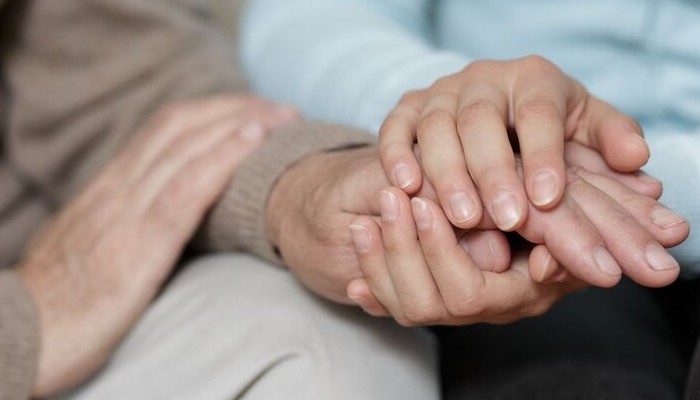
Panic attacks are sometimes described as intense waves of fear or worry that immobilize the body. They tend to be unpredictable but may be linked to a variety of triggers such as crowded rooms, social gatherings, severe stress in the workplace or a significant life transition. In order to fully treat the effects of a panic attack, it’s important to understand how it affects the body.
What Causes a Panic Attack?
A panic attack often strikes at the most unexpected moment. For some people, it may only happen once. For others, these attacks recur often and may be triggered by specific situations. If a person suffers regularly from panic attacks, they may stem from another condition such as depression, agoraphobia or a panic disorder.
Symptoms of a panic disorder can include anticipatory anxiety and phobic avoidance. The former is a regular feeling of anxiety and tension, usually coming from the fear of a future panic attack. This sense of dread may limit enjoyment of everyday activities and responsibilities. Phobic avoidance is the act of purposely staying away from certain locations that have either triggered panic attacks before or that contain potential triggers. It may also lead to severe agoraphobia, which is the fear of having a panic attack in a place that wouldn’t be easy to leave.
Panic attacks don’t only occur when there is a history of anxiety. Though the exact causes are unconfirmed, some other medical conditions and substances can contribute to panic as well. These include:
- Cardiac issues
- Hyperthyroidism
- Hypoglycemia
- Stimulants
- Medications or medication withdrawal
How Can You Help Someone Experiencing a Panic Attack?
An unexpected panic attack can be overwhelming to manage. If a friend, family member or coworker is experiencing one, immediate support minimizes danger and prevents future stress. Take the following steps to help someone in crisis:
- Stay calm: Being near a panic attack may trigger your fight or flight response. Try to maintain a calm demeanor to help the person feel more grounded.
- Activate the senses: Ask the person, “Can you name five things you can see? Four things you can touch? Three things you can hear? Two things you can smell? One thing you can taste?”
- Offer reassurance: Panic attacks tend to last a few minutes, so make sure the person is breathing normally and regaining composure. At a later point, it may be helpful to encourage the person to seek therapy for anxiety.
How Are Panic Attacks Treated?
Anxiety can be quite difficult to treat as it is usually provoked by uncontrollable factors and stress. Seeking a physician’s advice is helpful in confirming that the symptoms are not coming from another disorder.
Counseling and cognitive behavioral therapy is a common way to identify potential triggers. It is often effective in treating panic disorders, phobias, social anxiety disorder, general anxiety and other issues. A successful therapy session can break down negative thoughts that contribute to anxiety and reframe perceptions of everyday situations to be more realistic.
The physical symptoms of a panic attack may affect a victim even after the attack has passed. Some medications, such as antidepressants, antianxiety prescriptions or irregular heartbeat medicine, help treat symptoms and get the person’s physical well-being under control. Yoga and exercise relax the body, release pent-up tension in the muscles and aid in mitigating medicinal side effects. In order to keep existing anxiety at bay, it’s important to avoid stimulants such as coffee, tobacco, recreational drugs and alcoholic drinks.
As with any mental illness, a strong support system is beneficial as a source of encouragement. Anxiety and chronic stress can be overwhelming and difficult to manage. If a friend or family member suffers from panic attacks, being a trustworthy source of support can help him or her in the long run.
How Can Workplace Stress Be Reduced?
Stress at work may be one of the biggest obstacles to productivity and efficiency. Workload, drama with coworkers and insufficient benefits can all contribute to stress and tension. In order to combat the mental pressure, companies that implement strategies to alleviate stress can help prevent employees’ anxiety or potential panic attacks. These strategies include:
- Workplace wellness initiatives
- Flexible hours and remote working
- Team building and social collaboration
- On-site counseling
- Recognition of employees’ efforts
In the U.S., 2.7% of the population is affected by panic disorders. An unexpected panic attack can stem from any number of causes, whether at home or the workplace. To learn more about how a panic attack affects the body, check out our accompanying infographic.
Ram Pardeshi, MD, is a talented and compassionate psychiatrist. He is Medical Director at Mindful Urgent Care, a premier psychiatry practice based in New York. Dr. Pardeshi is passionate about helping patients suffering from mental illness.
Sources:
https://www.slideshare.net/InfographicsForBlogs/how-a-panic-attack-affects-your-body
https://adaa.org/about-adaa/press-room/facts-statistics
https://www.healthline.com/health/panic-disorder
https://www.webmd.com/anxiety-panic/guide/understanding-panic-attack-treatment#3




